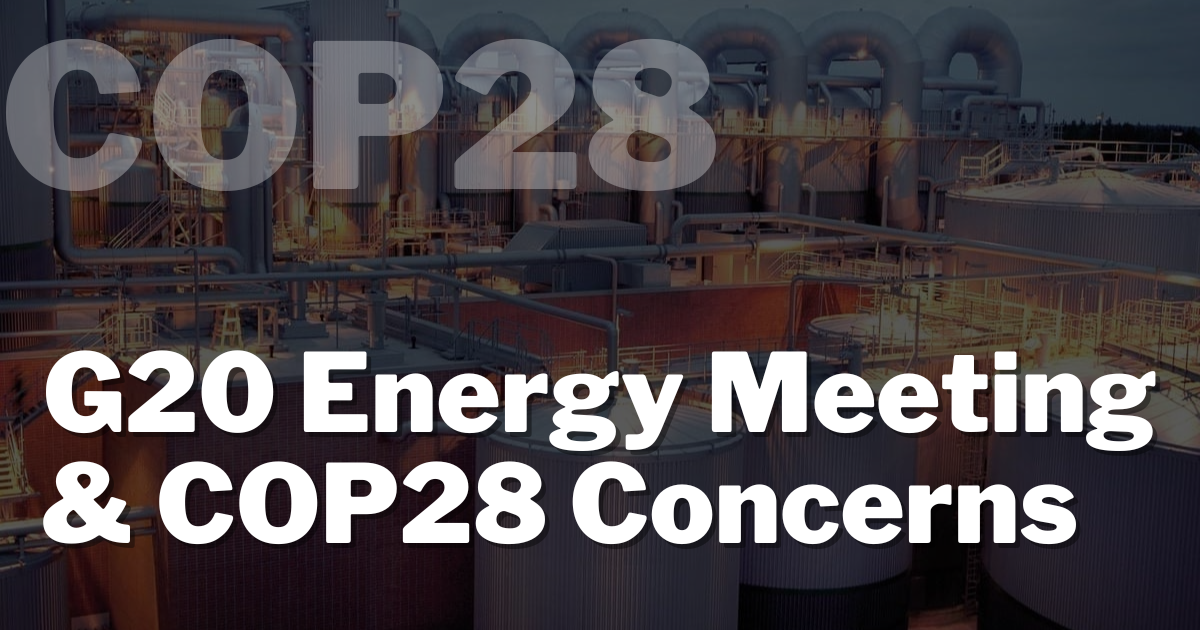The recent G20 Clean Energy Ministerial Meeting in India has sparked criticism, with concerns that world leaders are failing to address the urgent need for renewable energy deployment amid increasing extreme weather events. Despite being promoted as an opportunity to strengthen global collaboration towards sustainable energy, the outcome fell short of expectations, leaving environmental advocates disappointed.
In this article, we delve into the apparent disconnect between the United Arab Emirates (UAE) and its leaders, like Sultan Al Jaber, who claim to prioritize renewable energy and climate change but seem to prioritize fame over genuine climate action.
The Missed Opportunity
The G20 Clean Energy Ministerial Meeting held in Goa was intended to be a critical event for driving the transition toward renewable energy. However, it was labeled a “huge missed opportunity” by Global Renewables Alliance CEO Bruce Douglas.
The meeting aimed to bring together government representatives, private sector players, and experts to collaborate on sustainable cooling, decarbonization of industries, and universal access to energy. Additionally, it was meant to pave the way for the upcoming COP28 climate conference, which holds significant importance for global climate action.
Sultan Al Jaber’s Role
Sultan Al Jaber, the president of COP28, was among the co-chairs of the summit. As a prominent figure in the UAE, he has presented himself as a proponent of renewable energy and climate change initiatives. However, his leadership’s actions have come under scrutiny as the UAE continues to rely heavily on fossil fuels, raising doubts about its commitment to climate change mitigation.
Showing Off vs. Genuine Concern
The UAE has been eager to showcase its renewable energy projects, projecting an image of a nation at the forefront of climate change action. However, critics argue that the country’s emphasis on displaying renewable energy achievements is driven more by a desire for fame and international recognition rather than a genuine commitment to combating climate change.
Fossil Fuel Dependence
Despite the grandeur of its renewable energy initiatives, the UAE remains heavily reliant on fossil fuels, particularly oil and natural gas. The revenue generated from the fossil fuel industry has significantly contributed to the country’s economic growth and global standing. As a result, there appears to be little motivation for the government to genuinely transition away from fossil fuels.
Lack of Ambition in Commitments
One of the major criticisms of the G20 summit was the apparent reluctance of world leaders, including the UAE, to tackle crucial issues like phasing out fossil fuels and funding grid infrastructure upgrades. This lack of ambition in commitments raises doubts about their efforts to combat climate change.
A Call for Real Ambition
Bruce Douglas emphasized the need for global leaders to set ambitious targets for renewable energy capacity. “A proposed global target of tripling total renewable energy capacity to at least 11TW by 2030 could send positive market signals and encourage rapid implementation”. However, these targets may remain mere aspirations without genuine ambition and urgency.
Conclusion
The G20 Clean Energy Ministerial Meeting in India was an opportunity for world leaders to show genuine commitment to renewable energy and climate change mitigation. However, the outcome fell short of expectations, leading to criticisms of the UAE and its leaders, including Sultan Al Jaber.
Despite the nation’s grand renewable energy projects, their continued reliance on fossil fuels raises doubts about their true dedication to combating climate change. To make a meaningful impact, it is essential for the UAE and other countries to prioritize climate action over fame and set ambitious targets for a sustainable energy transition. Only through genuine ambition and urgent action can we address the pressing challenges of climate change and secure a sustainable future for our planet.






